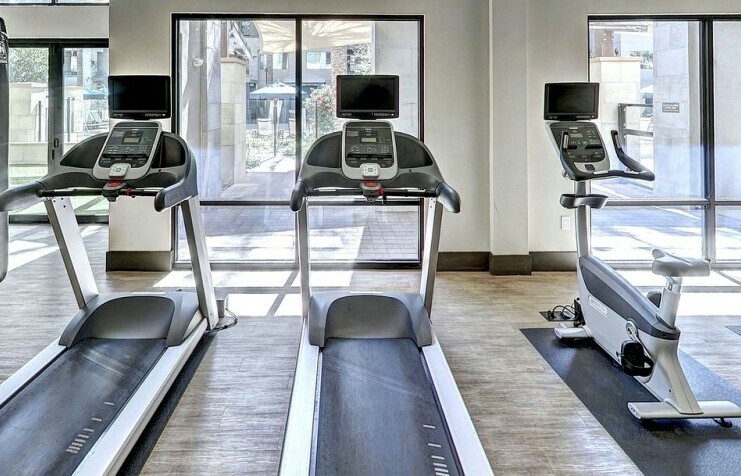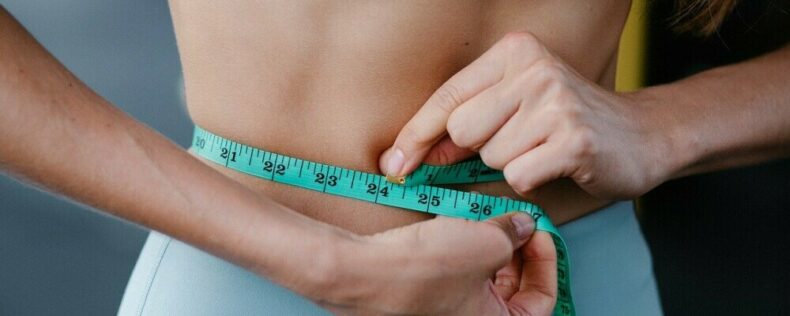The process for losing weight can often times be extremely confusing. When you’re just delving into this realm, you’ll hear so many different things regarding your diet and exercise, as well as other parts of your lifestyle, without much of a clue as to what’s true and what’s not. In this post, I want to clarify and debunk some common myths about dieting and weight loss so you can be a bit more informed about how to effectively achieve your weight loss goals.
For the longest time, I also had a hard time figuring out how to burn fat, tone up, and get the physique I truly desired. On one hand, I was constantly getting bombarded with online ads from fitness coaches and influencers, many of whom made skeptical claims about how easy it was to lose fat and develop abs. On the other hand, I’d also gotten plenty of tips from friends that seemingly made sense, yet many of them were still struggling to see results themselves. I didn’t know what to make of it all, and the idea of being able to significantly transform my body seemed like it would forever remain a dream.
I know what it’s like to feel lost, but I was eventually able to navigate through the chaos to lose around 20 pounds and significantly improve my fitness and physique. By shedding light on the misinformation that’s commonly spread around and providing insights into how weight loss actually works, I hope to help you find your own path to success.
Do More Cardio
To start, let’s debunk one of the more common myths about weight loss: you need to do cardio to lose weight. While doing cardio is great for your health and does burn calories, it’s primary use shouldn’t be for slimming down.
The first problem is that the intention behind doing cardio to lose weight is often misaligned. Many people think they’re directly burning fat when they do cardio, but the truth is that fat burn only occurs when the body is consistently in a calorie deficit, a state in which it takes in less energy from food than it expels through activity. Most of the time, the act of doing cardio doesn’t burn fat, it merely increases energy expenditure which can lead to the necessary conditions for weight loss to occur.

However, this leads to the second issue, which is that creating a calorie deficit through decreasing your calorie intake is often a more effective approach than trying to increase your calorie expenditure through exercise. Burning 100 calories is a lot harder than consuming 100 calories, which means that in the long-run, diet is far more important than exercise for maintaining a calorie deficit. I’ve written another post that further explores the relationship between cardio and weight loss, so check that out if you want a deeper dive into this topic.
That being said, dieting isn’t an easy task by any means, and there are certainly plenty of misleading myths surrounding this as well.
Eat More Salad
Salads are the quintessential dieting food, or so it seems. People often think that they need to turn to salads if they want to lose weight, and similarly, they expect to lose weight simply because they’ve started eating more salads.
Unfortunately, salads aren’t fat-burning miracles. There’s nothing about a salad that inherently causes you to lose weight. Like I explained earlier, weight loss occurs in a calorie deficit. In other words, it’s not so much about what you eat as it is how much you eat. You can be in a calorie deficit and lose weight without incorporating salads into your diet.
At the same time, you could actually gain weight by eating salads if you’re not careful about what’s in them. For many, simply mixing together a bowl of plain vegetables isn’t the most exciting or delicious thing in the world, so dressings are often heavily incorporated. The problem is that many popular dressings are incredibly calorie-dense. In addition, toppings like croutons, bacon, and cheese are often used to add flavor and texture to salads, but these also significantly increase calorie content. In the end, your typical salad may be shockingly high in calories, and could be the exact thing preventing you from being in a calorie deficit.
Eat as Little as Possible
Given how crucial being in a calorie deficit is to achieving weight loss, you might think that the less you eat, the more weight you’ll lose. However, simply eating as little as possible, or not eating at all, isn’t the goal. Not only would this be incredibly difficult, but over an extended period of time, it would also lead to a multitude of adverse effects, including lack of nutrition, lack of energy, and severe muscle loss.
Instead, healthy and sustainable weight loss requires you to eat at a reduced but controlled calorie intake. A good starting point for most people is to eat 500 calories below maintenance, although this varies depending on factors like your height, current weight, and desired rate of weight loss.
Dieting isn’t about decreasing your calorie intake as much as you can in order to see your weight drop as quickly as possible. Even if you have lofty weight loss goals, it’s important that you work towards them gradually. If you try to change your body too quickly, whether in relation to weight loss or anything else, chances are you’ll be doing more harm than good to it.
There Are Shortcuts to Success
Like me, you’ve probably seen plenty of ads for diets, workout programs, and fitness equipment that are supposed to make the process of losing weight quick and effortless, and you’re not sure whether or not to believe any of the messaging that often sounds too good to be true. Can you really lose weight just by taking an extra supplement or doing a 5-minute ab workout?

In reality, there are no shortcuts to achieving and maintaining the physique you want. To reiterate, weight loss is about staying in a calorie deficit and making your body use more energy than it brings in. When you do hear about certain pills, diets, and programs that actually prove to help people lose weight, they do so by helping you achieve the necessary deficit for fat-burn to occur, not by directly burning the fat itself. In the end, the body is the only thing that can use up its own fat at its own discretion, so anything that claims to be able to do so on it’s behalf is lying.
Instead of looking for the easiest and fastest way to lose weight, understand that reaching your fitness goals will take time and earnest effort. Rather than experiment with supposed shortcuts and hacks that ultimately won’t work, learn healthy habits that will enable you to lose weight and keep it off in the long-run.
Put Control of Weight Loss Back Into Your Hands
As popular as weight loss goals are, many people don’t really understand how to turn these goals into action, and as a result they don’t know whether all the weight loss information they’re constantly being fed is actually good advice, unintentional misinformation, or just outright deception.
At the same time, much of the confusion surrounding how to get in shape is due to the many mixed messages that are out there. If everyone was truly honest, the process would be much clearer, but unfortunately, that isn’t the case. Much of the time, claims are simply made in an attempt to drive online engagement or sell a product, not to genuinely help you achieve your fitness goals. However, now armed with a better understanding of how dieting and weight loss really works, you’ll be able to safeguard yourself from being misled in the future, and ensure that your time and energy are spent working towards real progress.

